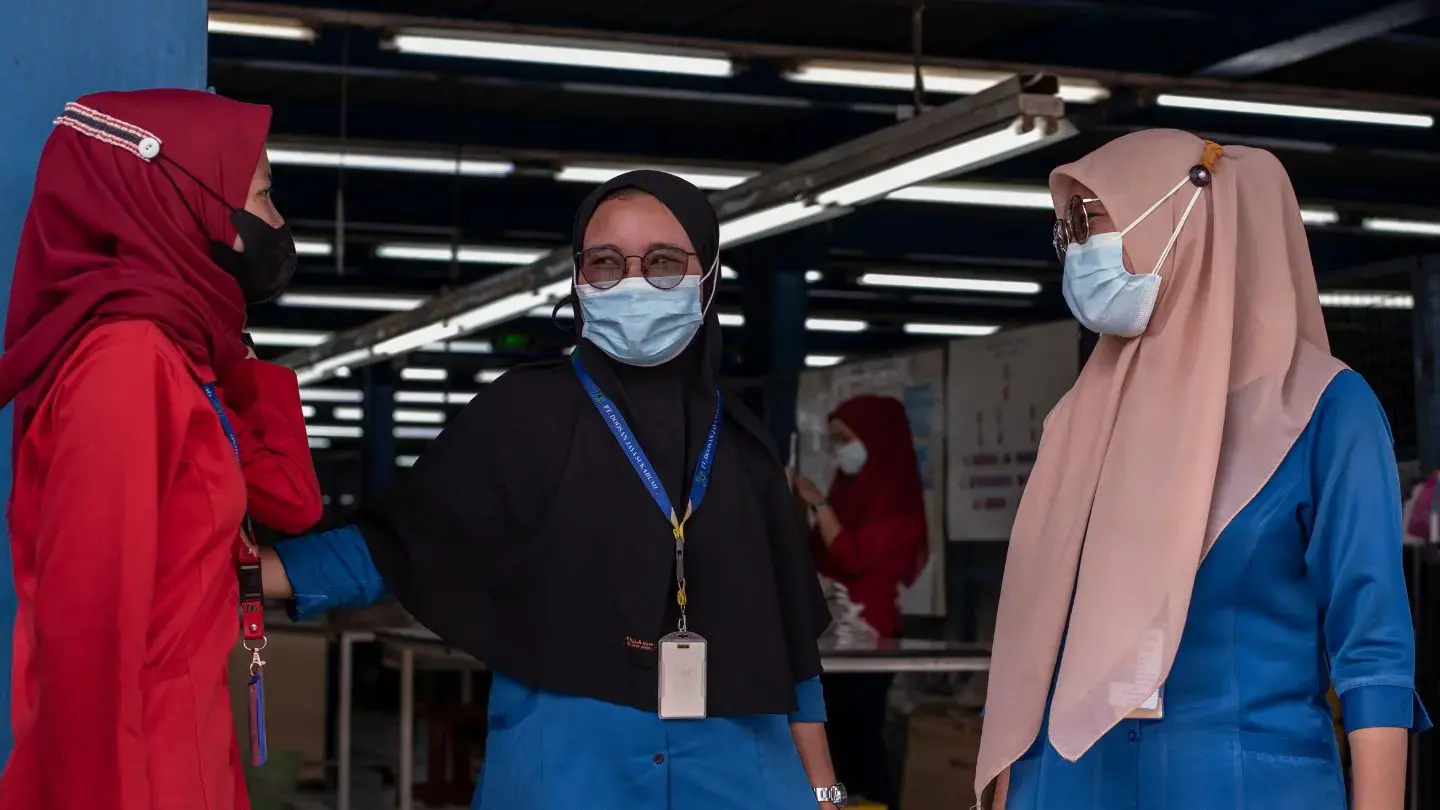When Miss Universe 2012 Olivia Culpo turned up to talk HIV prevention with youth at Pacific Place last Saturday, she might have expected to hear crickets chirping. Instead, Culpo was surprised by throngs of young people eager to help her become a better advocate. They wanted to tell Miss Universe what she needs to know about HIV and young people in Indonesia—their lives, hopes, and vulnerabilities.
The discussion, led by and for youth, was organized by UNFPA, the United Nations Population Fund, in collaboration with UNAIDS and the National AIDS Commission, and hosted by @america, the US cultural center in Jakarta.
Each year's Miss Universe is charged with an advocacy mission: for Culpo, it's HIV prevention. Currently in Indonesia on her first international visit as Miss Universe, Culpo, 21, was eager to hear from youth on the issue, and surprised by their openness.
"I didn't expect an audience of young people here would be so open in talking about HIV and how to prevent it," said Culpo backstage after the event.
Alongside a panel of peers, Culpo offered her thoughts on how to empower youth against HIV. "Open dialogue among young people can create a big difference for the future. We need to feel comfortable enough to talk about the reality of our situation," Culpo said.
"We want to help Olivia make the most of her advocacy platform by drawing knowledge on a personal level from the UN and our partners in Indonesia," UNFPA Representative Jose Ferraris explained, "so we brought together experts and audiences from two of UNFPA's core areas, HIV prevention and youth empowerment."
Indonesia is a strategic place for Culpo to begin her international advocacy on HIV prevention as Miss Universe. 36 percent of the population is between the ages of 15-24. According to the Ministry of Health, people in their twenties account for over 36 percent of new reported AIDS cases in Indonesia, meaning they were likely infected as a teenager or in their early twenties.
Sexual transmission is now the primary method of contracting HIV in Indonesia. Many complain that it is difficult for young people to access reproductive health services, testing, or information that would protect them from HIV infection.
"The trouble with HIV/AIDS is that a lot of the time there's taboo, or uncomfortable feelings around the topic of sex. But when it comes down to your safety and your health, it's really important that people have whatever they need to protect themeslves against HIV," said Culpo.
Culpo stressed that people first "need to respect themselves enough to protect themselves."
Culpo's appeal for self-respect and open dialogue resonated with Kah Sin Cho, UNAIDS Counrty Coordinator in Indonesia. "We talk a lot about statistics, but the numbers obscure the fundamental issue of respect," Cho said.
"We need to create an environment where people feel respect for themselves and learn to take care of themselves; otherwise we are not likely to see any change in behavior," said Cho. "Respecting and caring for yourself means using protection during sex, and, if you're living with HIV, treating your condition by consistently adhering to ART," he added.
Asked what advice she would offer to young people who were struggling for the right to access health services or information, Culpo said, "The most important thing to do is talk: Talk it out before you just assume others are going to be able to see it from your perspective as a younger person."
The discussion's panelists included Oldri Sherli Mukuan, programme manager for Ikatan Perempuan Positif Indonesia, a national network of women living with HIV, who spoke about HIV's impact on young women; Angga Dwi Martha, UNFPA Youth Advocate, who highlighted the involvement of youth in the population and development agenda; and Wenita Indrasari, Deputy Secretary for Research and Development of the National AIDS Commission of Indonesia. Indrasari brought attention to efforts of the National AIDS Commission, supported by UNAIDS and UNFPA, to prevent HIV among youth in Indonesia. The discussion was moderated by Lutviah, a member of UNFPA's youth advisory panel.
The event's headline dialogue was preceeded by remarks from Deputy Chief of the United States Mission to Indonesia Kirsten Bauer, UNFPA Representative Jose Ferraris, and Chairman of the Putri Indonesia Foundation Wardiman Djojonegoro, which is hosting Miss Universe's visit to Indonesia.
Following welcoming remarks, Culpo sat for an interview with Isyana Bagoes Oka in which she shared the story of her background and journey to becoming Miss Universe, as well as her previous experiences from advocacy work on behalf of HIV/AIDS issues. Culpo was accompanied onstage by the new Puteri Indonesia 2013 Whulandary Herman, freshly-crowned Friday night at the Jakarta Convention Center.
Culpo appeared energized by the audience's questions and advice. "I've learned a lot today, and I am going to take all the things that you have shared with me," she said.



